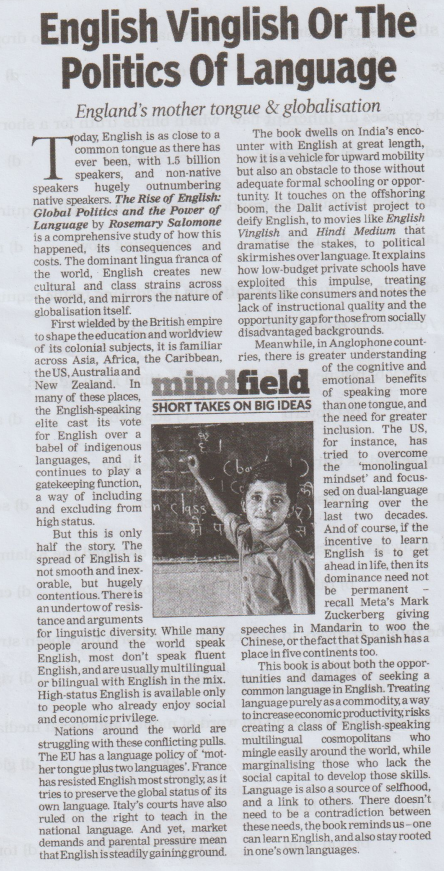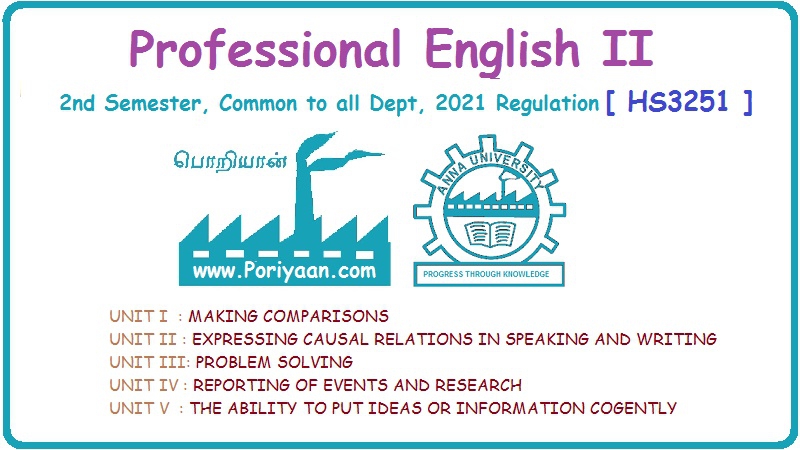Professional English: General Grammar
Exercise [Vocabulary Contextual Meaning of Words]
Grammar
Professional English : Chapter 1 : Contextual Meaning of Words : I. Guess the meaning of the underlined word from the context : II. Find out unfamiliar words from the following newspaper clipping and write your guess. Refer the dictionary and check whether your guess is correct or not. Write the dictionary meaning in the box pro- vided
Exercise
I. Guess the meaning of the underlined word from the context:
1.
The social stigma surrounding transgenders has forced many to
drop out of school.
a)
prestige
b)
disgrace
c)
custom
d)
justice
2.
This episode exposes an inherent flaw which blinds truth for a
short time.
a)
inherited
b)
temporary
c)
essential
d)
existing
3.
To lumber along on the huge contraption in maddening traffic requires some
guts.
a)
walking fast
b)
going slow
c)
moving slow
d)
running
4.
To lumber along on the huge contraption in maddening traffic
requires some guts.
a)
machine /device
b)
road
c)
track
d)
complicated
5.
Retire from your job, but never retire from your mind is an adage.
a)
practice
b)
proverb
c)
adaptability
d)
accusation
6.
R Nagaswamy served as curator for art and archaeology.
a)
custodian
b)
observer
c)
artist
d)
sculptor
7.
Recipient of many accolades, Sri Nagaswamy was awarded the Kalaimamani
award.
a)
prizes
b)
titles
c)
honour
d)
criticism
8.
Thanks to the robust recovery in rich countries, exports have been strong.
a)
slow
b)
strong
c)
rigorous
d)
vigorous
9.
Artisanal chocolate brands depend on word of mouth and social
media.
a)
modern
b)
traditional
c)
Local
d)
global
10.
The copious rain has raised hopes.
a)
abundant
b)
non-stop
c)
intermittent
d)
torrential
II. Find out unfamiliar words from the following newspaper
clipping and write your guess. Refer the dictionary and check whether your
guess is correct or not. Write the dictionary meaning in the box pro- vided:

English
Vinglish Or The Politics Of Language
England's
mother tongue & globalisation
Today
English is as close to a common tongue as there has ever been, with 1.5 billion
speakers, and non-native speakers hugely outnumbering native speakers. The
Rise of English: Global Politics and the Power of Language by Rosemary Salomone
is a comprehensive study of how this happened, its consequences and costs. The
dominant lingua franca of the world, English creates new cultural and class
strains across the world, and mirrors the nature of globalisation itself.
First
wielded by the British empire to shape the education and worldview of its
colonial subjects, it is familiar across Asia, Africa, the Caribbean, the US,
Australia and New Zealand. In many of these places, the English-speaking elite
cast its vote for English over a babel of indigenous languages, and it
continues to play a gatekeeping function, a way of including and excluding from
high status.
But
this is only half the story. The spread of English is not smooth and inex
orable, but hugely contentious. There is an undertow of resis tance and
arguments for linguistic diversity: While many people around the world speak
English, most don't speak fluent English, and are usually multilingual or
bilingual with English in the mix. High-status English is available only to
people who already enjoy social and economic privilege.
Nations
around the world are struggling with these conflicting pulls. The EU has a
language policy of 'mot- her tongue plus two languages'. France has resisted
English most strongly, as it tries to preserve the global status of its own
language. Italy's courts have also ruled on the right to teach in the national
language. And yet, market demands and parental pressure mean that English is
steadily gaining ground.
The
book dwells on India's enco unter with English at great length, how it is a
vehicle for upward mobility but also an obstacle to those without adequate
formal schooling or oppor- tunity. It touches on the offshoring boom, the Dalit
activist project to deify English, to movies like English Vinglish and Hindi
Medium that dramatise the stakes, to political skirmishes over language. It
explains how low-budget private schools have exploited this impulse, treating
parents like consumers and notes the lack of instructional quality and the
opportunity gap for those from socially disadvantaged backgrounds.
Meanwhile,
in Anglophone count- ries, there is greater understanding of the cognitive and
emotional benefits of speaking more than one tongue, and the need for greater
inclusion. The US, for instance, has tried to overcome the 'monolingual
mindset' and focus- sed on dual-language learning over the last two decades.
And of course, if the incentive to learn English is to get ahead in life, then
its dominance need not be permanent recall Meta's Mark Zuckerberg giving
speeches in Mandarin to woo the Chinese, or the fact that Spanish has a place
in five continents too.
This
book is about both the oppor- tunities and damages of seeking a common language
in English. Treating language purely as a commodity, a way to increase economic
productivity risks creating a class of English-speaking who multilingual
cosmopolitans mingle easily around the world, while marginalising those who
lack the social capital to develop those skills. Language is also a source of
selfhood, and a link to others. There doesn't need to be a contradiction
between these needs, the book reminds us-one can learn English, and also stay
rooted in one's own languages.
Professional English: General Grammar : Tag: : Grammar - Exercise [Vocabulary Contextual Meaning of Words]
Related Topics
Related Subjects
Professional English II
HS3251 2nd Semester 2021 Regulation | 2nd Semester Common to all Dept 2021 Regulation
